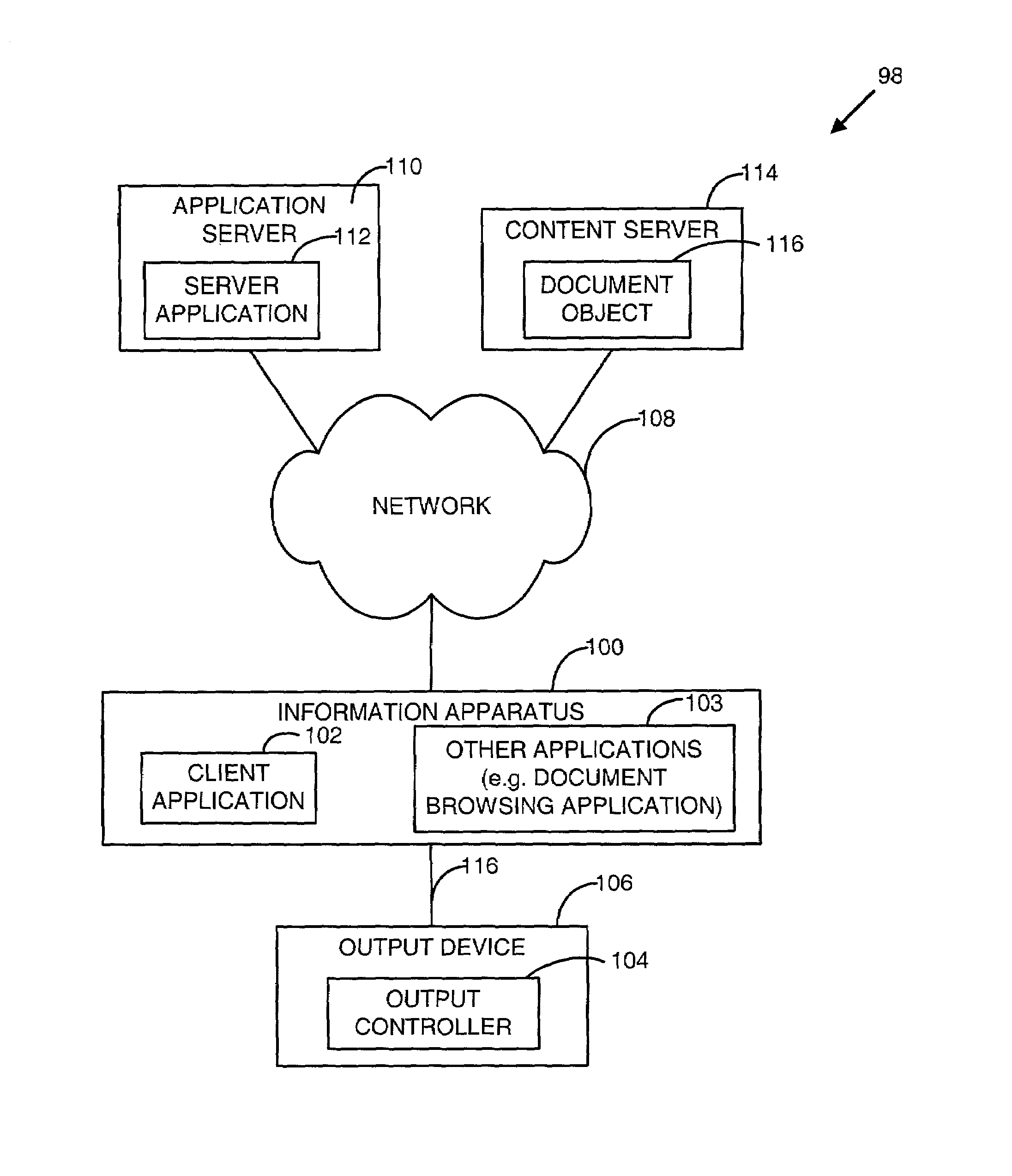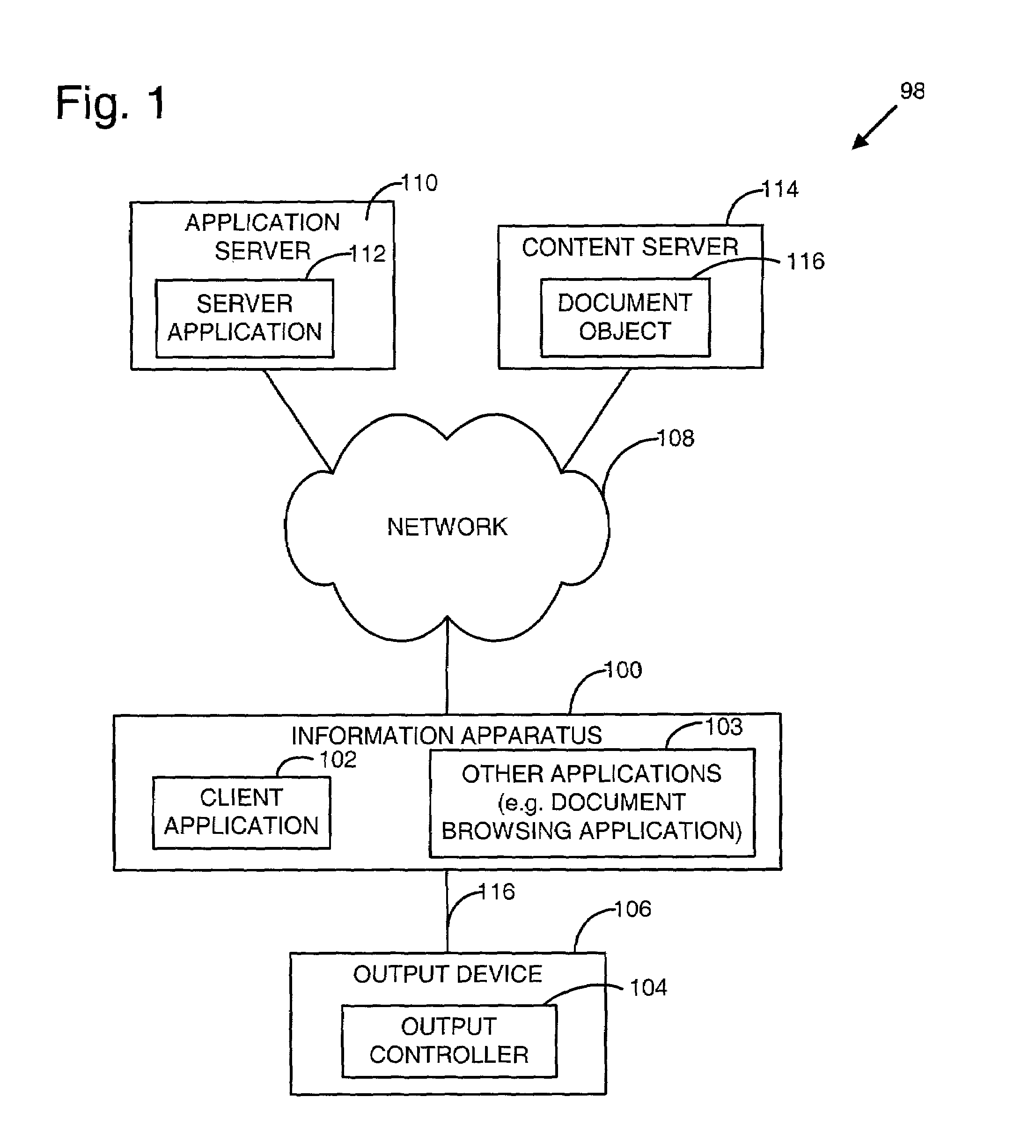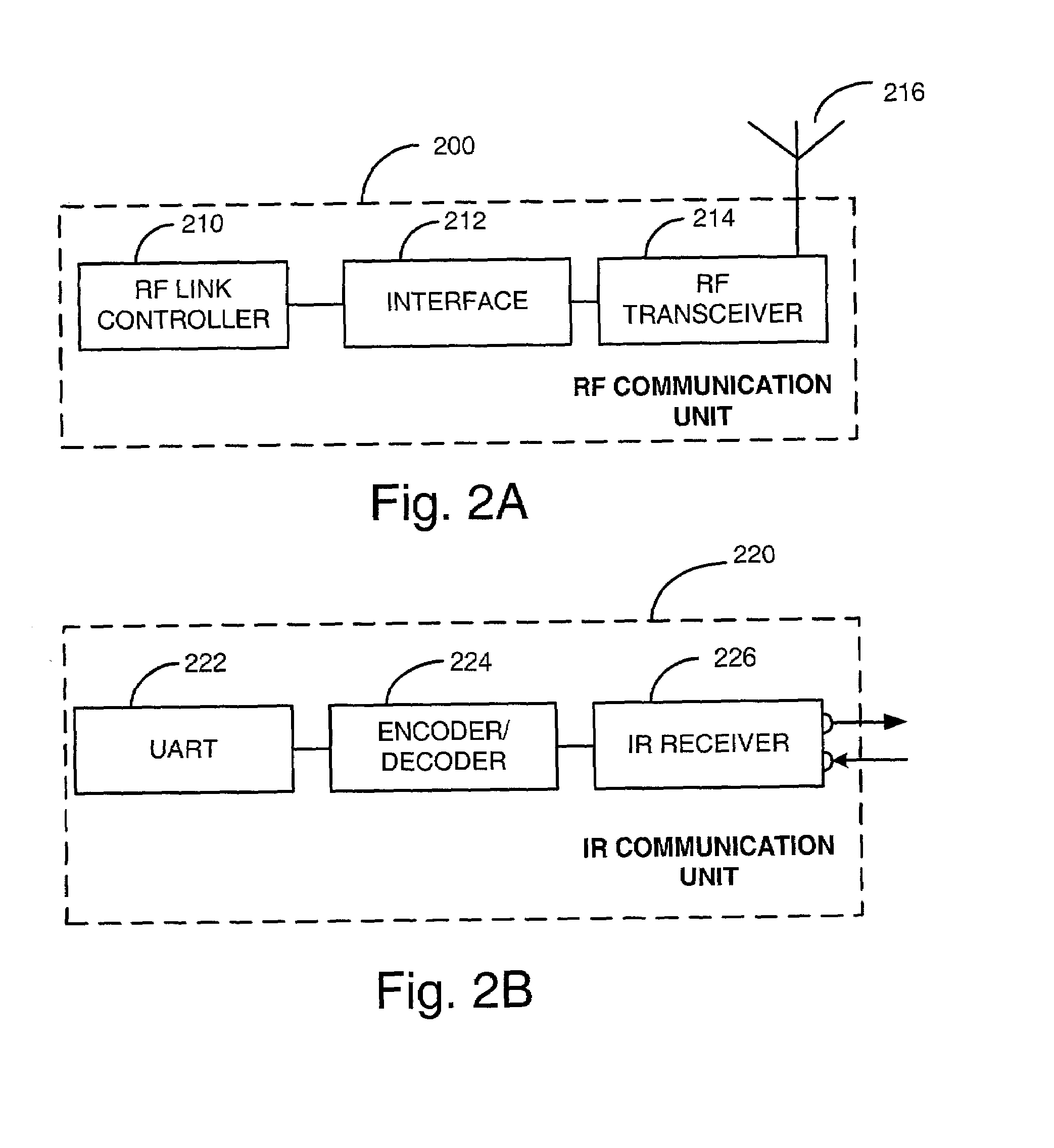System for mobile and pervasive output
a mobile and pervasive output technology, applied in the field of digital content delivery, can solve the problems of inconvenient installation and configuration process, many unsophisticated users may be discouraged from adding new peripherals, and add a degree of complexity and work to end-users, and achieve the effects of reducing installation and configuration costs
- Summary
- Abstract
- Description
- Claims
- Application Information
AI Technical Summary
Benefits of technology
Problems solved by technology
Method used
Image
Examples
Embodiment Construction
[0030]Sets forth below are definitions of terms that are used in describing implementations of the present invention. These definitions are provided to facilitate understanding and illustration of implementations of the present invention and should in no way be construed as limiting the scope of the invention to a particular example, class, or category.
Objects
[0031]An object may refer to a software and data entity, which may reside in different hardware environments or platforms or applications. An object may encapsulate within itself both data and attributes describing the object, as well as instructions for operating that data. For simplicity of discussion, an object may also include, for example, the concept of software components that may have varying granularity and can consist of one class, a composite of classes, or an entire application.
[0032]It is important to note that the term object is not limited to software or data as its media. Any entity containing information, descr...
PUM
 Login to View More
Login to View More Abstract
Description
Claims
Application Information
 Login to View More
Login to View More - R&D
- Intellectual Property
- Life Sciences
- Materials
- Tech Scout
- Unparalleled Data Quality
- Higher Quality Content
- 60% Fewer Hallucinations
Browse by: Latest US Patents, China's latest patents, Technical Efficacy Thesaurus, Application Domain, Technology Topic, Popular Technical Reports.
© 2025 PatSnap. All rights reserved.Legal|Privacy policy|Modern Slavery Act Transparency Statement|Sitemap|About US| Contact US: help@patsnap.com



